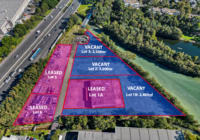
Shopping malls face falling rents and asset values
Retail rents and property values in some of the country’s largest shopping malls could fall by as much as 15 per cent in the economic aftershock of the coronavirus pandemic, according to Macquarie analysts.
For the country’s two biggest ASX-listed retail landlords, Westfield operator Scentre, and Vicinity, those devaluations could lead to an earnings decline of around 27 per cent. It would also hit the balance sheets, with gearing to rise 39 per cent for Scentre and 32 per cent for Vicinity.
“Industry feedback suggests asset valuations need to decline by 15 per cent, reflecting a softer leasing environment,” Macquarie analysts Darren Leung, Stuart McLean and Caleb Wheatley wrote in a client note entitled Mid-season sale.
Pressure in the retail sector would follow as landlords factor in greater amounts of vacancy and longer downtime between tenants, as well as lower retention rates and softer market rent growth in the wake of COVID-19.
“To reflect these cash flow headwinds, we run the scenario of a 15 per cent decline in all rents. We note medium-term headwinds could result in greater declines.” they said.
Already short-term income has been hit for both shopping mall landlords such as Scentre and Vicinity and smaller, private suburban retail strip owners as tenants close their shops.
Celebrated strips such as Sydney’s King Street in Newtown are heavily shuttered with as much as 80 per cent of shops and restaurants closing up, at least temporarily.
Just 36 per cent of traders across the Westfield chain of malls remain open.
At the same time, powerful retail houses, from discount pharmacy chains such as Chemist Warehouse to multi-brand players such as the stable managed by Solomon Lew’s Premier Investments, are pushing to cut rents.
Looking past the immediate shock to the retail sector of the social distancing measures taken to stop the spread of the deadly virus, the Macquarie analysts expect the downturn in earnings to play out over a longer period of time, as much as four years.
Investors are already anticipating some of those earnings declines, effectively pricing it to the stock prices for the listed retail property trusts which have been hit hard in recent weeks.
Both Scentre and Vicinity would need to reduce debt as their balance sheets absorbed portfolio devaluation, according to Macquarie.
“To alleviate the elevated financial leverage, equity issuance or asset sales are viable options in our view,” the analysts said.











